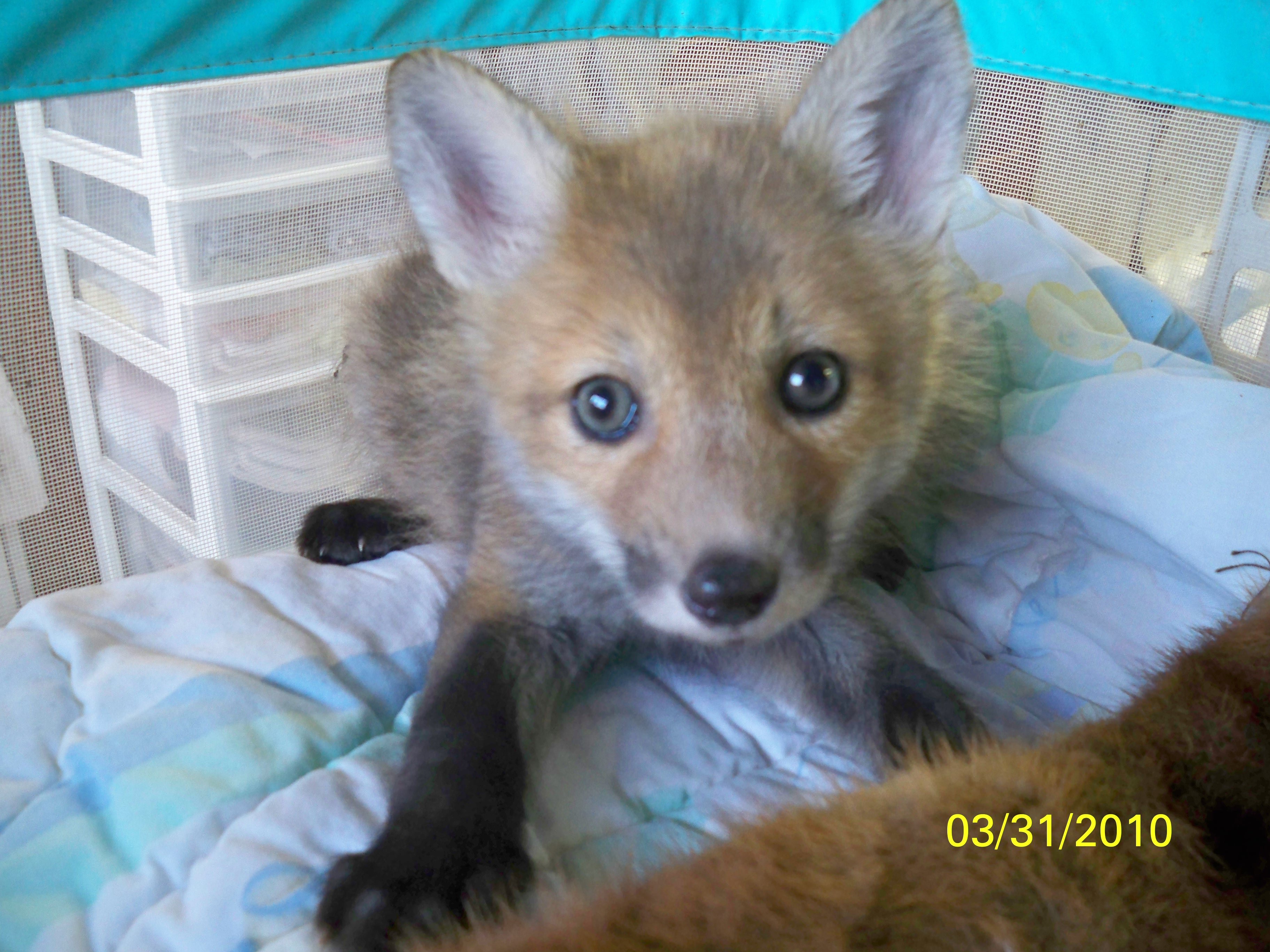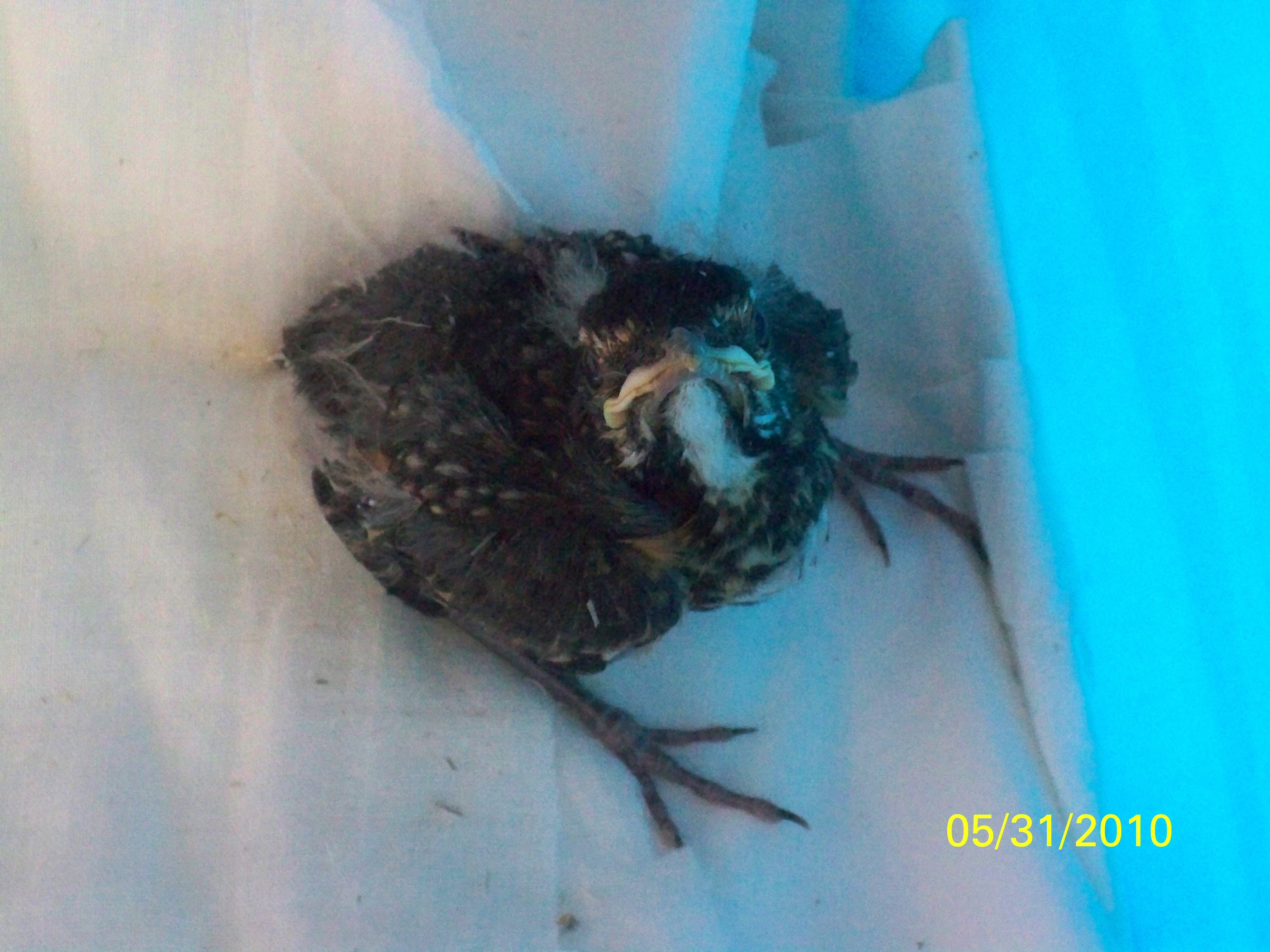Animal Care
Todays wildlife can be classified as "urban wildlife". They live among us...In our neighborhoods, in our yards and live under our sheds, homes, boats, RV's, etc...They have had to learn to adapt to us building into their homes, their forests.
They have adapted. They have learned to live with us, and we must learn how to live with them.
Please do not attempt to rehab an animal by yourself. In most states it is illegal to possess a wild animal without being licensed.Most states have websites that will have licensed rehabbers listed.
If you find an injured or orphaned animal keep the animal warm and safe and contact your local rehabber. Remember to always leave a message. Most rehabbers are usually busy caring for the animals, cleaning cages, or out rescuing animals.
Do not feed any animal store bought milk, or baby formula.
Fawn Care
If you happen to find a fawn that appears to be orphaned, please do not touch it or remove it. Most of the time mom has just left it there to be safe and will return to care for it. Just because you do not see the mom does not mean she isn't around. The moms leave the fawns alone for as long as 12-14 hours at a time, and she leaves them close to our homes because they think they are safer closer to us because there are less predators. If you get this privilege, enjoy it, but don't interfere! Appreciate the opportunity to enjoy this miracle of nature up close, but do not intrude.
If in doubt, leave the fawn where it is, call a wildlife rehabilitator for advice. If you believe the fawn to be in immediate danger then immediately call a licensed wildlife rehabilitator or DNR. Please do not try to rehabilitate a fawn yourself. Fawns usually need urgent medical care that can only be provided by a licensed rehabilitator or a licensed vet who is experienced with treating wildlife. Although they look cute they are very fragile animals that can take a turn for the worse very quickly.
Fox or Fox family 
If you have a fox or fox family living under your shed or in your area the best thing to do is just leave them alone. They will move along when the babies get old enough. For the most part they want nothing to do with you, they just want to raise their kit(d)s just as you do.
They do not eat people, even small children!

Baby Bird Care
If you find a baby bird please do not touch it. If a feathered baby bird can not fly it is probably because it is in the process of learning. "Mom and Dad" will take care of the feathered baby when it is on the ground so please leave it where you find it. If you are worried about cats or other potential dangers you can move the baby under a bush so that it may hide but please leave it in the area.
The baby may face some dangers on the ground but it will have a better chance of surviving with "mom and dad" than it would being handled be humans. Just because you can't see mom and dad doesn't mean they are not there. They are there watching their baby. The babies have a better chance of surviving if we leave it alone!
Raccoon Care
When finding a baby raccoon remember they are not meant to be pets. A lot of people think it would be neat to have a pet raccoon. This is not a good idea. They are wild animals and have the potential to be very dangerous to you, your children and your pets. They also pose several potentially very serious medical dangers to you, your children and your pets.
They are very highly regulated by the Department of Natural Resources.
ALWAYS REMEMBER THAT WILD ANIMALS ARE JUST THAT..WILD!
THEY BELONG IN THE WILD!
THEY DESERVE TO BE RETURNED TO
THE WILD AS SOON AS THEY ARE READY.

